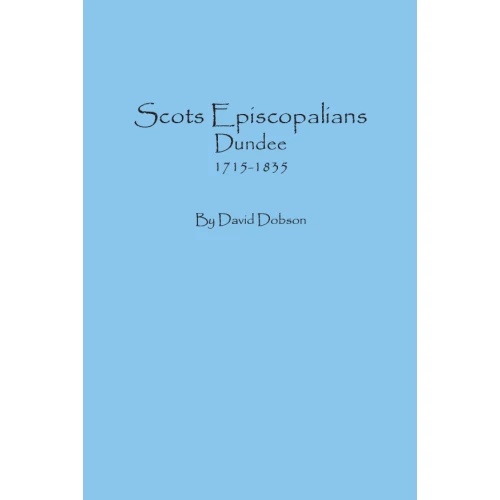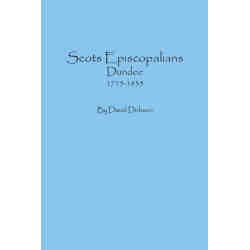Family historians seeking their Scottish origins before 1855, when statutory registration was introduced, have a major research source in the form of a massive database covering baptisms, marriages, and deaths as recorded in the Old Parish Registers of the Church of Scotland and the registers of the Roman Catholic Church. People of Episcopalian origin, however, have no such source at their disposal. While a handful of the Episcopalian registers, where they exist, have been published, the majority are in manuscript form and are scattered throughout the country in churches and archives.
In 1689 Presbyterianism became the established form of church government in Scotland and those people who wished to retain Episcopacy withdrew from the parish churches to form their own congregations. The Episcopalians were generally in favour of the House of Stuart and the Jacobite Cause, which led to Penal Laws being introduced from 1712. As a result, two distinct Episcopalian churches developed: the Qualified Episcopal Church, which prayed for the Hanoverian monarchs, used the English liturgy and prayer book, and employed Anglican clergy; and the other, which was under severe restrictions and retained the Scottish Episcopal practices.
In Dundee both churches existed and retained their independence until the early nineteenth century. The existence of records of baptisms, marriages, and deaths for Episcopalians are virtually non-existent in Dundee until around 1810. To identify who were members of the churches it has been necessary to use other sources, such as the vestry records and financial records, where available. The outcome of that effort is this partial compilation, which cites many, though not all, members of the church during the period 1715 to 1835. It is clear from the data in this book that most members were from Dundee and surrounding counties, but there were a substantial number from England and Ireland, as well as a handful from Germany and the Netherlands. A number of these Episcopalians had family links to Jamaica and India. This book is designed as an aid to genealogists and historians and is overwhelmingly based on records in St. Paul’s Cathedral and in the Dundee City Archives.


